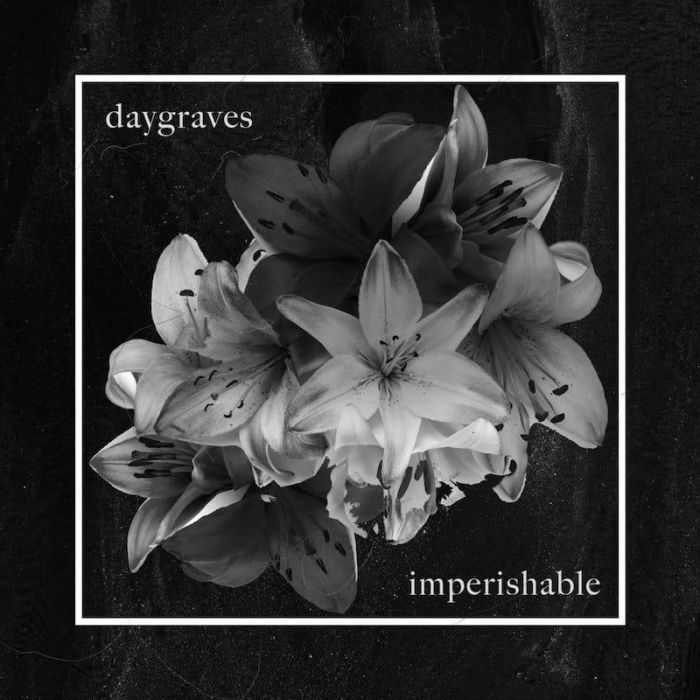Imperishable by Daygraves (Review)

The title of Daygraves’ Imperishable EP takes on some additional meaning when you know more about the story behind it. Posting on Instagram, the anonymous individual behind the blackgaze project revealed that he spent much of 2021’s summer afflicted by an unnamed disease, an experience that affected everything about the EP. Rather than record what he had planned to, Daygraves chose instead to record a 25-minute EP about being a Christian struggling with chronic illness.
Imperishable begins on a reflective and plaintive note, with languid guitars and haunting drones, while he sings “No matter what’s left/How long the night can last/I’ve had enough of this desert dust.” But as the EP progresses, it grows in scope and intensity. Throat-rending shrieks and brutal breakdowns coexist with guitar atmospherics and synth flourishes that are sometimes fragile and delicate, sometimes overwhelming, and consistently exhilarating.
Given that three of the EP’s songs cross the six-minute mark, Imperishable packs in a lot and I can see it overwhelming many listeners, particularly those who are less inclined towards anything remotely related to black metal (or shoegaze, for that matter). But the more I listen to Imperishable, the more I appreciate what this one-man band is trying to do. Yes, it’s a gauntlet to run, but then so is chronic illness.
Not to be trite or clichéd, but Imperishable helps one imagine the range of emotions that must accompany such sickness, from frustration and anger to moments of despair and resignation to, finally, a tenuous sense of peace, such as when he sings “I don’t need the milk or the honey/I just need to know that you know me” (“Less Human”).
Granted, my reading of Imperishable is probably influenced by that aforementioned Instagram post. “I inherited immortality a long time ago and while I’m not trying to cash that in anytime soon,” he wrote, “I do look forward to the undefiled and the imperishable.” Even so, it’s hard not to feel something celebratory in the closing moments of “Less Human,” as Daygraves’ guitar take on a defiant, even triumphant tone that’s all the more stirring because of the preceding darkness and despair.
On a (potentially narcissistic) sidenote, I can’t help but consider Daygraves’ music in light of my religious upbringing. In the churches in which I grew up, an artist like Daygraves would’ve certainly been considered problematic, if not outright sinful. After all, how could music so dark and ominous — filled with inhuman screams, torrential guitars, and whatnot — be edifying or glorifying to God?
There’s been decades’ worth of concern expressed about Christians being involved in metal, and while there are certainly valid points to be made, much of that concern has been shaped by fear, ignorance, and bad faith arguments. I won’t even attempt to address all of that here. Instead, I’ll just say that I’m glad there are artists like Daygraves who have no problem employing metal’s brutal intensity to make honest, deeply felt expressions of faith like Imperishable.